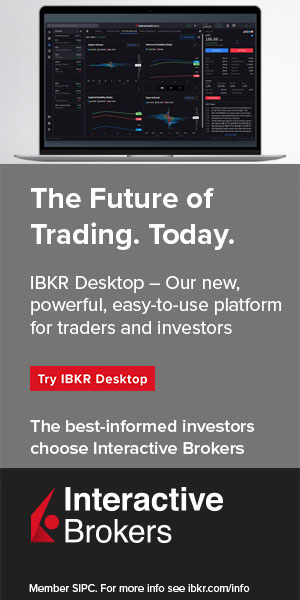Zak Mir: I reviewed your latest book Trading Triangles a few weeks ago, and it reminded me that you have a long history not only of being an author, but also in the financial markets as a pioneer in the UK. Indeed, it is a much longer history than many of the fly by night self proclaimed gurus I could mention. You have written about almost every aspect possible in this area from the 1987 Crash to the latest crisis from 2007 in Financial Cataclysm Now! On this basis you seem to be ahead of the curve not only in terms of what may happen in the markets, but also the instruments and methods required to trade, from binary bets to tunnel trading. But all of this seems to go relatively unrecognised. Do you have an explanation for this?

John Piper: Thank you, Zak, nice of you to say so. In fact having written Financial Cataclysm Now! In 2006 – just before the problems occurred in 2007 I was actually vilified – by a taxi driver who owned several properties and threatened to throw me out of his cab! I thought the situation at that time was unsustainable, as I did not think much for the prospects for property prices at the time.
ZM: So it was a bit like the shoe shine boy giving John D. Rockefeller stock tips just before the 1929 Crash? But your taxi driver test worked as a shoeshine indicator.
JP: In fact this shows how being a pioneer is not always a happy place to be, as you are outside and at odds with society at large. It makes enormous sense financially but not everyone can cope with going against the mass flow.
ZM: The whole issue with this area is that there are now so many financial commentators, strategists and analysts that unless you do something very special it is almost impossible to get noticed, as opposed to 20 years plus ago, when there was a relatively empty playing field.
JP: Yes, especially with the cult of celebrity. If David Beckham made a market announcement everyone would be aware of what it was, and it would be world famous. But its value may be dubious. His opinion on what after shave to wear may also be dubious but the herd mentality is alive and well throughout the globe.
ZM: How does an ordinary investor or trader tell whether the person who might be guiding them in the markets is any good or not? What are the signs you look for? How do you see the wood for the trees?
JP: It is much easier with a short term trader such as Mark Austin, who you very kindly dubbed Mr FTSE. He trades most days and you can look at the track record. Longer term timeframes are not so easy. In 1987 and 2006 I called major peaks in the markets, but it is not so straightforward on these types of events which happen far less frequently.
ZM: But say that I am in the business and have a radar for spotting the guru – you in 1992 when I first became a broker and Mark Austin a couple of years back. However, these days every Spreadbetting company has their own in house guru / technical analyst. 10 years ago it was just you me and maybe a couple of other people, with total domination of a field with little credibility. Now everyone is a TA guru and it’s the way to be.
JP: At the end of the day it is all about self interest. People have to realise that they are responsible for their own investments. You have to find people who are reliable and trustworthy, and know what they are talking about. But you still cannot pass on the responsibility, you have to make the decisions and you have to choose somebody who can help you do that.
ZM: But this means that people are relying on us to advertise / promote ourselves over and above everyone else: nothing to do with your service, and more related to the amount of cash in your wallet available for marketing. A rather sad state of affairs.
JP: Just like the U.S. Presidential Election: all about money and marketing. The fact that Barack Obama knows how to use email and Facebook and can use it to say how he represents the 95% who are not wealthy gave him a huge edge. I have no particular view on the different qualities of the various presidential candidates but the selection process has little to do with that – it has far more to do with marketing and how good each look on TV – to me these aspects are completely irrelevant as to how good the are. These themes are repeated all through life in our society today. MacDonalds make food that is arguably crap; I believe this has been proven, yet the masses buy it – how absurd is that? They even ruin a raw carrot by soaking it in a sugar solution. But MacDonalds have a huge marketing budget and know how to fool our bodies into eating pap. Similarly if you seek an investment adviser you are liable to find the one that spends the most money on marketing.
ZM: I have been following your service for a number of years, and was wondering whether you could talk me through that. Why would people wish to go with John Piper and what your goals are?
JP: Let’s take a look at the last full year, 2011, where we had strength in two particular areas. We were strong on Gold, and have not yet put a foot wrong there. We had gone long from 2009, after a triangle break and this proved to be a great trade. Triangles have been particularly important in recent years. This long position was added to during 2012 when another triangle appeared with support coming in around $1,650 and we then closed that for a profit. We are looking to go long of Gold again once the current correction is out of the way.
The VIX was also bought early in 2011, and we also bought short ETFs on S&P, DAX and FTSE 100. We were up 100% on the VIX after the big declines seen in August 2011, as well as solid gains on the other ETFs.
For 2012 we did something similar, but it has not worked out so well as we have not had the big fall. Essentially, my Big Call Service, which is what I am talking about, gives a few major calls each year..
ZM: Is there one trigger when you are going about your daily business that gets you attracted to a market opportunity?
JP: Well, with Gold it has all been about triangles. The triangle I think is a very powerful signal; you get this coiled spring effect. A market goes into this ever narrowing range and then breaks out and bursts forward. If you get a move out of a triangle you get a tight stop as the price action is very narrow at that point, and secondly you often see very big moves. On the VIX in 2011 we have a simple strategy, buy below 20 and then get out when you see a decent move. For 2012 the strategy was not so good, we are still up overall, in that 2011 profits outweigh 2012 losses, and the current positions may still come good. For the indices I tend to look at Elliott Wave theory with other techniques as well. As with all trading the idea is to make good money when it goes right, and lose less when it goes wrong.
ZM: Is there any rule in terms of saying on a wrong trade – I have had enough, I am getting out.
JP: On triangles you have a ready stop loss, of the pattern itself.
ZM: But playing devil’s advocate, is it not that for both trendlines and triangles, there is a dependency on the subjective drawing skill of the trader as to where support / resistance may be.
JP: It is easy to become subjective and ignore breaks in both directions. For instance, I have ignored breaks to the upside in the Dow. In fact the Dow is fascinating at the moment. We have had this rising wedge pattern into the recent peaks and this pattern has taken place over a number of years. We have seen false breaks of the upper trendline in the past month, which went straight through the lower parameter and we are now testing the lower parameter again. A rising wedge is just a triangle that points up, by about 45 degrees. So we have seen this break down through the triangle through this rising wedge pattern – a sell signal. We have had a retest of the floor of the triangle which you often see, and we are now coming down. There is a lot of weakness here, which ties in with an old saying that if Santa Claus doesn’t visit Wall Street with a decent rally, then watch out for the next year. In contrast, on the Nikkei Dow the situation is very positive given that it is above 10,000. But of course this is a very different situation to the U.S. market, as the Nikkei has been in a bear market for 25 years.
ZM: It seems from our talk that you seem to have many more fundamental and psychological influences on your trading than most technical traders, something which I have tried to emulate as well?
JP: Psychology is fascinating, and it is also worth bearing in mind something which is not often mentioned. For instance, when someone buys a market, the market weakens – quite strangely. Of course, if enough people buy a market it goes up. But every time someone buys a market the potential for them buying it has been removed and the potential for them selling it increased. So if a hundred people buy a market it goes up, but the market becomes weaker as all that potential buying power has turned from positive to negative (ie to potential selling power). This is what happens as markets go higher and higher, in that they get weaker and weaker. You don’t see that, you just see an apparently stronger (higher) market.
ZM: So in some ways you are really not a technical analyst. Would you describe yourself in any other way?
JP: Our good friend Tom Winnifrith called me a Psycho Trader, which is perhaps as good a description as any.
ZM: “Psycho” brings in the aspects of technical, psychological and fundamental as well. Do you think that normal technical analysts are missing out on a large element if they do not look at the fundamentals or market sentiment?
JP: The key thing is does it work? If it does, then you use it, and it is the same with trading instruments. It is a little like the situation with binary bets a few years back. As a trader and a writer I was staggered by what they offer and was quite amazed that no one else had written about them.
ZM: Actually, that reminds me. The book that I would urge everyone to read is The Way To Trade, which was a really revelation some years back when it came out. The classic TA book is supposed to be Technical Analysis of Stock Trends by Edwards and Magee, which I find dry, old fashioned and totally over rated. It is supposed to be the bible on the subject, especially by those who know very little about the markets. In contract, The Way To Trade is much more focused and interesting, I keep delving into it on a regular basis, always learn something new and regard it as a trading Aladdin’s Cave. It is a book that certainly prevents me from changing gurus and strategies, a couple of the biggest mistakes many people make.
JP: I’m glad you like it and, as a writer, I have been really pleased with the feedback on that book – it really does make all the effort worthwhile. As it happens, I am currently writing the sequel to The Way To Trade, provisionally entitled The Way To Trade Better. It is all about improving your trading to get the results you want. Hopefully, it will be completed by the middle of Q1 2013. If any readers would like free updates on the progress of the new book or on markets generally they are welcome to email me at jptt@aweber.com


 Hot Features
Hot Features













